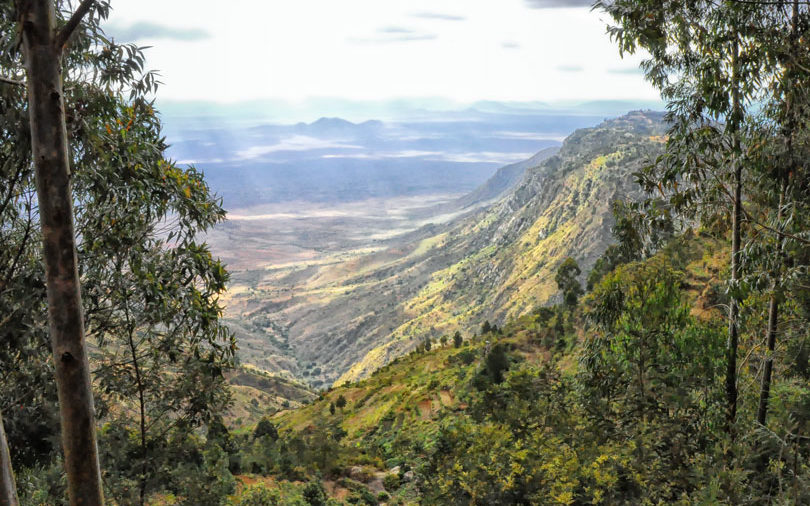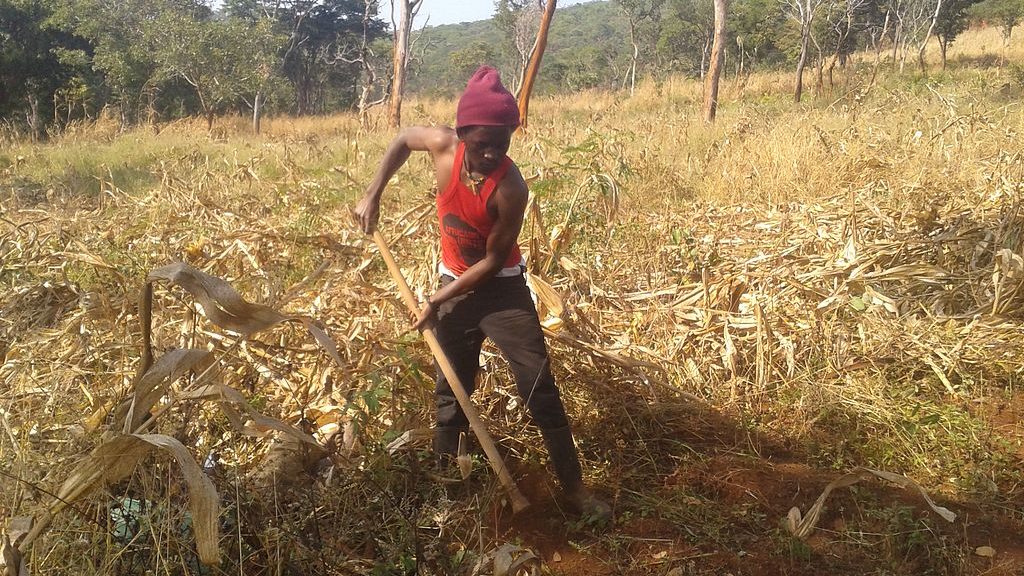
Since primary school, Agatha Kiama has been fond of the environment. Though some childhood passions fade over time, Kiama’s love for nature was a launch point for her career tackling climate change, sustainability and food systems in Tanzania.
“My passion is about opening people’s eyes to the impact we have on the environment,” she says. “Climate change is directly linked to food security in Africa. Tanzania is my country – it needs people with expertise on climate change and food systems to help protect our environment, not just today, but for future generations.”
Based at the Economic and Social Research Foundation in Dar es Salaam, Kiama supports the commissioned research department which leads implementation of the GCRF AFRICAP programme in Tanzania.
Since joining the team in 2019, she has contributed to several major activities, including the AFRICAP training and study tour in Tanga Region last year.
Inspired by the opportunity to level-up her impact, in early 2021, Kiama undertook a three-month fellowship. Half of her time was spent developing research skills with leading academics at the University of Leeds, while the other half was based at Chatham House where she worked alongside the world-renowned research institute’s brightest minds to hone her policy engagement skills in the Queen Elizabeth II Academy for Leadership in International Affairs programme.
Tanzania learning alliance and COVID-19 impacts
Stemming from key outcomes of the 2020 study tour, the Leeds portion of Kiama’s fellowship focused on supporting the launch of a new climate-smart agriculture learning alliance in Muheza District.
“The idea for a learning alliance in Muheza originated during the AFRICAP study tour. Participants, especially farmers, saw the need for a learning alliance to bring different stakeholders together to share knowledge,” she explains.
“Climate change is really impacting Tanzania. What farmers know about climate change is very different from government and other stakeholders. The learning alliance is a major opportunity to develop solutions to address challenges for food systems and build resilience.”

Supervised by Dr Susannah Sallu and Dr Nicola Favretto, Kiama scoured the globe, preparing a briefing note that outlines the major challenges, key opportunities, and best practices from learning alliances around the world. The results are being fed directly into the Muheza District alliance through presentations to stakeholders, including government, private sector, civil society, and farmers.
During the second half of her fellowship, Kiama did secondary data collection examining the impacts of COVID-19 on food systems in Tanzania, looking across private sector, civil society and government effects. The results will be incorporated in a paper exploring the impacts of, and response to, COVID-19 in food systems globally.

Fellowship translates into lifelong skills
Outside of her achievements during the fellowship, Kiama says she developed critical skills that will aid her throughout her career, including how to build a network, write a policy brief, facilitate virtual meetings, and engage with policymakers.
“I now have the confidence to engage effectively with policymakers, I know how to influence based on my ideas, and how to communicate my research. These skills will be essential to my role with ESRF and to contributing insights from the AFRICAP programme to Tanzania’s review of the National Climate Change Strategy and Agriculture Climate Resilience Plan,” she says.
“Climate and food systems are my passion – the AFRICAP fellowship at Chatham House is a stepping stone to things I hope to achieve in the future.”
Webinar on 29 July
Learn more about Agatha’s fellowship at ‘Creating Climate-Resilient Agri-Food Systems in Sub-Saharan Africa’, a free GCRF AFRICAP webinar on 29 July from 13:00 – 14:30 (BST).
